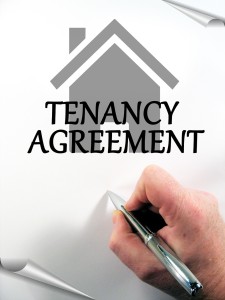 When they moved in, they looked like the perfect people to care for your property. They even passed all of your screening tests. But now, these seemingly responsible tenants have gone bad.
When they moved in, they looked like the perfect people to care for your property. They even passed all of your screening tests. But now, these seemingly responsible tenants have gone bad.
Whether they’re failing to pay rent, damaging the house, bothering neighbors, or even breaking the law on your property, these five ways to deal with a bad tenant can help you end the problems with your renters once and for all.
1. Review Your Lease
Once you pinpoint the specific negative behavior that’s happening, the first place you should turn to is your lease. Comb through it closely to see if your tenants have violated any clause in there. (This is why your lease should be written by a lawyer!)
If you find out that the tenants are directly in violation of the lease, you can start the eviction process.
But if their behavior isn’t clearly breaking the lease terms, or you’re otherwise unsure if you would win an eviction case, talk to a lawyer and do research on your specific situation. Once you’ve figured out where you stand, move forward with addressing your bad tenants.
2. Talk to the Tenant
Because evictions are so expensive and time-consuming, talking should be the next step no matter what your lease says.
Meet the tenant either in a public place or anywhere there are witnesses and explain the situation to them in a calm, clear way.
After telling them what has been going wrong and underscoring your efforts to communicate with them about it in the past, ask them to either move out by a certain date or fix the problem immediately (i.e. clean the house, pay all rent due in full right then and there, etc.)
If you explain that an eviction would result in damaged credit, a lawsuit to collect past-due rent, and garnished wages, oftentimes a tenant will leave on their own accord to avoid any more trouble.
3. Keep Records
Whatever interaction you have with the tenant, whether it is a conversation, a payment, or a notice, make a record of it and keep a copy with the time and date the action took place. When you serve notices make sure you either get a signature from the tenant or a receipt from the Post Office as proof that they got it.
You’ll need these records if you go to eviction court, or they can serve as a way to convince your tenant not to go to court and instead move out without incident.
4. Start the Eviction Process
If you’ve done all of the above, it’s time to be extra sure that you have a reason to evict your tenant and give them a notice of eviction explaining why they’re being given the notice, what they can do to avoid eviction, and the deadline to take action or leave.
Sometimes, this is enough to scare them into either leaving peacefully or doing what you’ve asked. But other times you’ll have to go through the entire process.
5. Sell The House
One other option available to you is to sell the house even if tenant is still living on the property. Many home buyers purchase houses with tenants living in them all the time and have experience dealing with them.
When you decide that now is the time to sell, you can avoid the headache of an eviction and still get rid of your tenant once and for all. If you want to completely wash your hands of the situation, this is the perfect option.
Dealing with bad tenants is always tough, no matter how experienced you are with renters. But if you’re a tired landlord, you have choices in resolving the situation available to you, whether it’s talking to the tenants, starting an eviction, or selling your house for cash fast. By choosing to take control of the situation you’re making sure the issues go away as soon as they possibly can.
Are you sick and tired of having to deal with a bad tenant? Call us at 469-250-0018 or contact us online for a free cash offer on your house. We have experience dealing with bad tenants and can help you sell your property today!